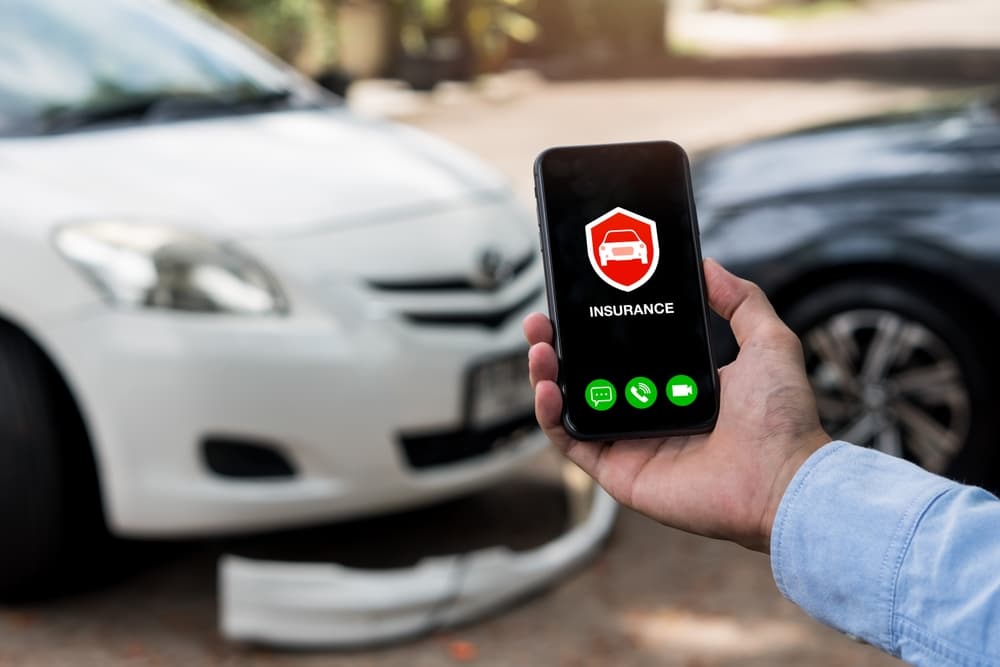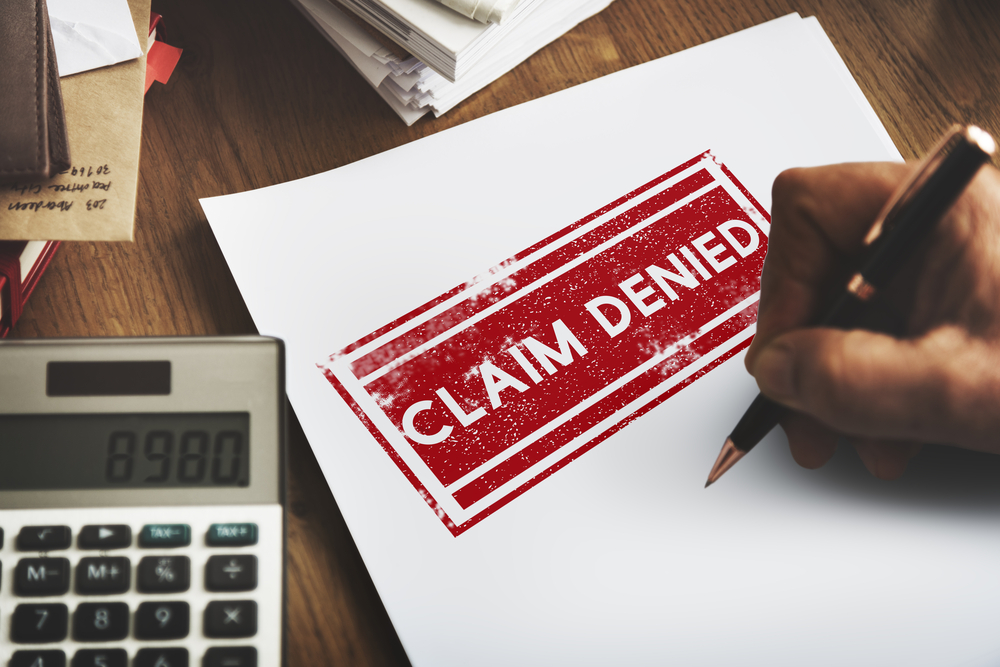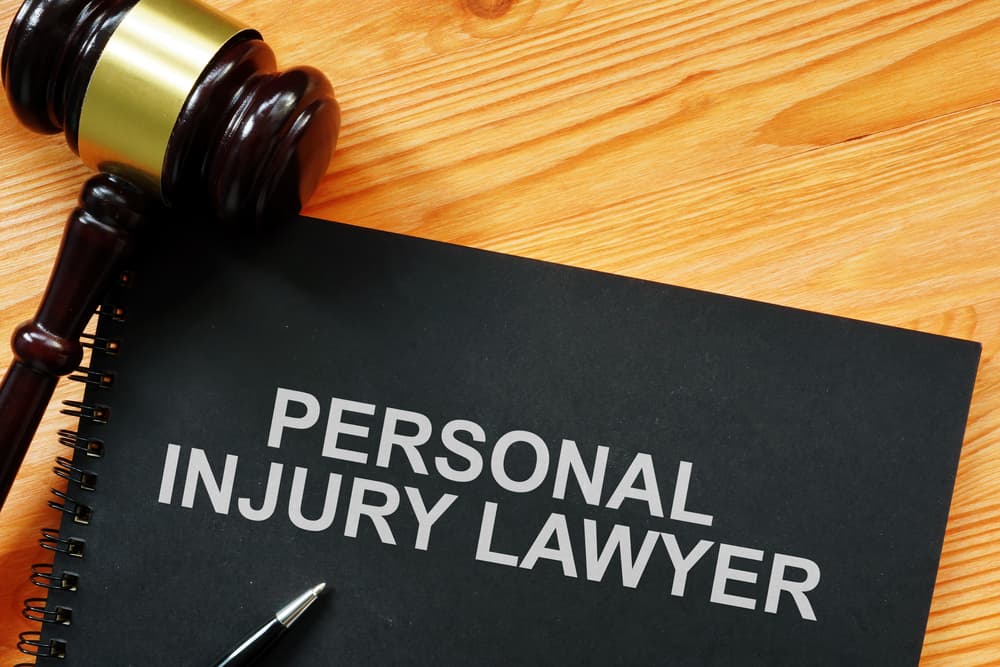When faced with a personal injury accident that wasn't your fault, the urge to call your insurance company might seem intuitive. However, it's crucial to pause and consider your options carefully. Contrary to popular belief, there may be better choices than contacting your insurer immediately.
Prematurely discussing the incident can potentially jeopardize your claim. Instead, allowing your personal injury attorney to handle all communications with the insurance company would be best. By doing so, you can protect your rights. Here's a look at why calling your insurance company directly may not be wise and why you should let your lawyer deal with all insurers.
Why People Call Their Insurance Companies

About 25 million people visit U.S. emergency rooms each year for accidental injuries, many of which happen due to another party’s conduct. When someone suffers an injury in an accident, their first instinct is to call their insurance company, even if they are not to blame. But why? Let's look at some of the motivations behind this common impulse.
They Think it's the Right Thing to Do
First off, some persistent misconceptions are floating around. People often believe that reaching out to their insurer immediately is the responsible thing to do. They think it shows they're proactive and on top of things. However, this isn't necessarily the case; it can even work against them.
Fear of Repercussions
Then there's the fear factor. It's understandable; nobody wants to miss out on coverage in the cold. There's this nagging worry that you might not be covered if you don't report the incident immediately. In the aftermath of an accident, emotions can run high, and the urge to seek reassurance from the insurance company is strong. However, acting on this fear without fully understanding the implications can be a misstep.
Quick Help
Another reason people rush to dial their insurer is the desire for immediate assistance. When you're shaken up from an accident, having someone on the other end of the line to guide you through the process can be comforting.
You might think that by calling your insurance company, you're tapping into a support system that will help you easily navigate the aftermath. However, you can unwittingly say or do something that can harm your case without clearly understanding your rights.
Always take a step back and consider the bigger picture. Acting hastily without fully comprehending the potential consequences can work against you in the long run. So, before picking up that phone, it's wise to pause and consider whether reaching out to your insurer is the best course of action.
Why You Shouldn't Immediately Call Your Insurance Company On Your Own
Again, calling your insurance company might seem like the logical first step after a personal injury accident that wasn't your fault. Here's why hitting the brakes on that impulse is your best move.
The Risk of Admitting Fault
First off, there's the very real risk of admitting fault prematurely. In the heat of the moment, it's easy to get flustered and inadvertently say something an insurance adjuster can misinterpret as accepting blame. But even if you believe you weren't at fault, the insurer can misconstrue certain words or phrases and use them against you. That innocent apology or offhand remark? It can haunt you when it's time to settle your claim.
How Insurers Try to Trick Accident Victims into Accepting Fault
When you're involved in an accident, and you aren't to blame, dealing with insurance companies can feel like navigating a maze filled with traps. One of the most insidious tactics insurers employ is trying to trick accident victims into accepting blame. Here's how they do it.
Acting Like Your Friend
For example, they'll often reach out to you soon after the accident while you're recovering from your injuries. They might seem friendly and concerned, asking seemingly innocuous questions like, "How are you feeling?" or "Can you walk us through what happened?" But make no mistake – their primary goal is to gather information that they can use against you.
An Avalanche of Paperwork
Then there's the paperwork. Insurers are notorious for bombarding accident victims with mountains of forms and documents to sign. In the fine print, someone can often interpret clauses admitting fault or relinquishing your right to pursue further compensation. Without a trained eye to review these documents, you can unwittingly sign away your rights without even realizing it.
Recorded Statements
Maybe the most infamous tactic of all is the use of recorded statements. Insurers will often pressure accident victims into giving recorded statements under the guise of "cooperation." They'll assure you it's just a routine part of the claims process and will help expedite your claim. However, they carefully craft these statements to trip you up and elicit statements they can use to shift blame onto you.
By resisting the urge to reach for the phone and instead taking a step back to assess the situation calmly and rationally, you're positioning yourself for a stronger, more successful outcome in the long run.
The Potential Consequences of Calling Your Insurance Company

Calling your insurance company after a personal injury accident that wasn't your fault might seem like the responsible thing to do, but beware. There are potential consequences of doing so. Here are just a few.
Higher Premiums
First, let's talk about the impact on your insurance premiums. Many people believe that reaching out to their insurer immediately is the responsible thing to do. Unfortunately, even if you weren't at fault, simply reporting the incident can cause your premiums to skyrocket. Insurance companies operate on a risk-based model, and any indication that you're more likely to file a claim can result in a rate hike.
Coverage Denial
It's a harsh reality, but insurance companies are in the business of minimizing payouts. By reaching out to them directly after an accident, you're essentially handing them ammunition against you. Even innocent statements made in the heat of the moment can get twisted and used to deny your claim down the line. It's like handing your opponent the playbook before the game even begins.
Legal Issues
Perhaps most concerning is the potential for legal ramifications. By speaking with your insurance company directly, you're essentially opening yourself up to potential legal liabilities. The insurer can even use innocent admissions of guilt or fault to hurt your case, jeopardizing your ability to seek the compensation you deserve.
Remember, the potential consequences of calling your insurance company after a personal injury accident that wasn't your fault are significant. The risks far outweigh any potential benefits. That's why proceeding cautiously and seeking legal guidance before taking action is crucial. Doing so can protect your rights and ensure that you don't accidentally put yourself in harm's way.
Why You Need Legal Representation from a Personal Injury Attorney
When it comes to navigating the aftermath of a personal injury accident that wasn't your fault, having legal representation from a personal injury lawyer can make all the difference. Here's why.
Protecting Your Rights
First and foremost, legal guidance is crucial in protecting your rights every step of the way. Let's face it; the legal landscape can be a minefield, especially for those unfamiliar with its obstacles. Without someone in your corner who knows the ropes, you're essentially navigating uncharted territory blindfolded. A skilled injury attorney can give you the clarity and direction to make informed decisions and avoid pitfalls.
However, just like many other parts of life, timing is everything. In the wake of a personal injury accident, the window of opportunity to gather evidence and build a strong case is fleeting. That's why you should always hire an attorney immediately. The longer you wait, the greater the risk of key evidence being lost or compromised. By acting swiftly and securing legal representation right out of the gate, you're setting yourself up for success.
Sending a Message
Moreover, having an attorney on your side sends a clear message to the insurance company: you mean business. Again, insurers are in the business of maximizing profits. They'll often employ tactics designed to undermine your claim. But with a skilled attorney advocating on your behalf, you're not just another faceless claimant – you're serious about pursuing justice. This can level the playing field and ensure that the insurer treats you fairly throughout the claims process.
An attorney can be your strongest ally in seeking the compensation you deserve. From providing crucial guidance to advocating for your rights, an attorney can be your strongest ally. By hiring an attorney immediately, you're protecting your interests and taking proactive steps toward securing a brighter, more secure future.
How Personal Injury Attorneys Handle Communications with Insurers

When handling communications with insurers after a personal injury accident that wasn't your fault, having an attorney by your side is critical.
Insurance companies aren't in the business of handing out hefty payouts without a fight. They'll often employ tactics to minimize liability and undercut your claim. Without someone who knows the ins and outs of the legal system advocating on your behalf, you're putting your future at risk.
After suffering an injury in an accident that wasn't your fault, you might be experiencing a whirlwind of emotions and confusion. The last thing you need is to go it alone. That's why hiring an attorney immediately is essential. Securing legal representation as soon as possible is crucial to protecting your interests. Doing so will also mean you have someone to handle communications with insurers on your behalf.
Relieving Stress
So, how exactly do attorneys handle these communications? They act as a buffer between you and the insurance company. Rather than dealing with the stress and uncertainty of negotiating with the insurer directly, you can leave it to your attorney to handle all correspondence. This saves you time and hassle and ensures nothing gets lost in translation.
Handling Negotiations
Attorneys have the knowledge and experience to handle insurance negotiations effectively. They know how to craft compelling arguments and present evidence to maximize your chances of securing a favorable outcome. From gathering medical records to negotiating settlement offers, they handle every aspect of the claims process skillfully and precisely.
It's impossible to overstate the importance of hiring an attorney immediately after a personal injury accident. From providing crucial legal guidance to handling communications with insurers, they play a vital role in helping you receive the compensation you deserve.
Beware of Insurance Company Surveillance
Hopefully, you see why you shouldn't call your insurance company if you suffer an injury in an accident that wasn't your fault. However, never forget the insurer will do what it can to watch you, even if you leave all communications to your attorney.
You must be aware of insurance company surveillance due to its potential implications on their case. Insurance companies may employ surveillance tactics to gather evidence that contradicts or undermines your claims. This surveillance can take various forms, including video footage, social media monitoring, and even private investigators following you.
Insurance companies use the information they gather through surveillance in many ways, such as the following:
- Disputing the severity of your accidental injury.
- Diminishing your credibility.
- Denying your claim.
Insurers can misinterpret even innocent activities captured on surveillance footage, such as attending social events or engaging in light physical activity, and use them to damage your case.
Therefore, you should be cautious about your actions and what you share online. Assume the insurer is scrutinizing you at all times. This isn't to suggest you should be paranoid. However, you need to be careful. Think before you post anything on your social media feeds. Ask yourself if that post can hurt your case in any possible way.
Consulting a qualified attorney who can advise on how to protect your interests and advice regarding insurance company surveillance is important.
A Skilled Personal Injury Lawyer is Standing By
Do you call your insurance if you're not at fault? As you can see, the answer to that question is a resounding "No." Instead, hire an experienced personal injury lawyer and let them handle all insurance company correspondence.
We proudly serve Hillsborough County, Pinellas County, Pasco County, Polk County, and its surrounding areas in Florida:
Apex Law Firm - Tampa Office
412 E Madison St Suite 1206, Tampa, FL 33602
(813) 444-5212

